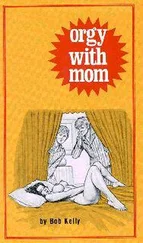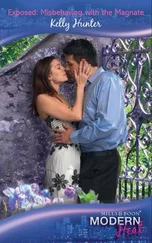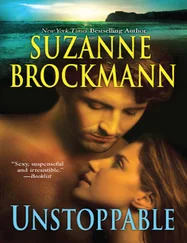Florence Kelly - With Hoops of Steel
Здесь есть возможность читать онлайн «Florence Kelly - With Hoops of Steel» — ознакомительный отрывок электронной книги совершенно бесплатно, а после прочтения отрывка купить полную версию. В некоторых случаях можно слушать аудио, скачать через торрент в формате fb2 и присутствует краткое содержание. Жанр: foreign_prose, foreign_adventure, на английском языке. Описание произведения, (предисловие) а так же отзывы посетителей доступны на портале библиотеки ЛибКат.
- Название:With Hoops of Steel
- Автор:
- Жанр:
- Год:неизвестен
- ISBN:нет данных
- Рейтинг книги:4 / 5. Голосов: 1
-
Избранное:Добавить в избранное
- Отзывы:
-
Ваша оценка:
- 80
- 1
- 2
- 3
- 4
- 5
With Hoops of Steel: краткое содержание, описание и аннотация
Предлагаем к чтению аннотацию, описание, краткое содержание или предисловие (зависит от того, что написал сам автор книги «With Hoops of Steel»). Если вы не нашли необходимую информацию о книге — напишите в комментариях, мы постараемся отыскать её.
With Hoops of Steel — читать онлайн ознакомительный отрывок
Ниже представлен текст книги, разбитый по страницам. Система сохранения места последней прочитанной страницы, позволяет с удобством читать онлайн бесплатно книгу «With Hoops of Steel», без необходимости каждый раз заново искать на чём Вы остановились. Поставьте закладку, и сможете в любой момент перейти на страницу, на которой закончили чтение.
Интервал:
Закладка:
Albert Wellesly, who lived in Denver, disliked very much the occasional visits to Las Plumas which his financial interests made necessary. He was still on the under side of thirty, but his business associates declared that he possessed a shrewdness and a capacity that would have done credit to a man of twice his years. Possibly people not infatuated with commercial success might have said that his ability was nothing more than an unscrupulous determination to grab everything in sight. Whatever it was, it had made him remarkably successful. The saying was common among those who knew him that everything he touched turned to gold. They also prophesied that in twenty years he would be one of the financial giants of the country. Las Plumas bored him to desperation, but on this occasion he thought it would be the part of wisdom to stay longer than had been his first intention. As long as the town was feverish with excitement he found it endurable. But when the dullness of peace settled over the streets again he walked about listlessly, wondering how he could manage to get through the day. At last he thought of Miss Delarue.
“That’s so!” he inwardly exclaimed. “I can go and find out if the English girl is in love with this handsome big fellow who has been stealing my cattle. I suppose it will be necessary for me to drink a cup of tea, but she will amuse me for an hour.”
Marguerite Delarue’s friends always thought of her and spoke of her as English, notwithstanding her French paternity. For her appearance and her temperament she had inherited from her English mother, who had given her also English training. Miss Delarue laughed at the forlorn dejection of Wellesly’s face and figure.
“My face is a jovial mask,” he gravely told her. “You should see the melancholy gloom that shrouds my mind.”
“I hope nothing has happened,” she exclaimed, with sudden alarm.
“That’s just the trouble, Miss Delarue. It’s because nothing does happen here, and I have to endure the aching void, that I am filled with such melancholy.”
“Surely there was enough excitement yesterday and last night.”
“Ah, yesterday! That was something like! But it was yesterday, and to-day the deadly dullness is enough to turn the blood in one’s veins to mud!”
“Then everything is quiet down-town? There is no more danger of trouble?”
“There is no danger of anything, except that every blessed person in the place may lie down in his tracks and fall into a hundred years’ sleep. I assure you, Miss Delarue, the town is as peaceful as the plain out yonder, and birds in their little nests are not nearly so quiet as are the valiant warriors of Las Plumas.”
“Oh, that is good! I am very glad, on my father’s account. He is so aggressive in his opinions that whenever there is any excitement of this kind I am anxious about him until the trouble is over.” She hesitated a moment, her lips trembling on the verge of further speech, and he waited for her to go on. “Mr. Wellesly,” she said, a note of uncertainty sounding in her voice, “you are not prejudiced by the political feeling which colors people’s opinions here. I wish you would tell me what you think about this matter. Do you believe Mr. Mead has killed Will Whittaker?”
Wellesly noted her earnest expression and the intentness of her voice and pose, and he decided at once that this was not mere curiosity. He paused a moment, looking thoughtful. His keen, brilliant eyes were bent on her face.
“It’s a hard question you’ve asked me, Miss Delarue. One does not like to decide against a man in such serious accusations unless he can be sure. The evidence against Emerson Mead, in this murder case, is all circumstantial, it is true, but, at least to me, it is strongly convincing.” His eyes were almost closed, only a strip of brilliant gray light showing between their lids, but he was watching her narrowly. “We know that he has been stealing cattle from us. We have found many bearing our brand among his herds. Our men have even caught him driving them into his own bands. In fact, there is no doubt about this matter. Emerson Mead is a cattle thief of the wiliest sort.” He paused a moment, noting the horrified expression on her downcast face. But she did not speak, and he went on:
“About this murder, if murder it is, of course nobody knows anything with certainty. But in my judgment there is only one tenable theory of Will Whittaker’s disappearance, and that is, that he was murdered and his body hidden. Mead is the only enemy he was known to have, and Mead had threatened to kill him. The evidence, while, of course, not conclusive, is shockingly bad for Mead.”
She looked away, toward the Hermosa mountains looming sharp and jagged in the fierce afternoon sunlight, and he saw her lips tremble. Then, as if her will caught and held them, the movements ceased with a little inrush of breath. He lowered his voice and made it very kindly and sympathetic as he leaned toward her and went on:
“For your sake, I am very sorry for all this if Mr. Mead is a friend of yours. He is a very taking young fellow, with his handsome face and good-natured smile. But, also for your sake,” and his voice went down almost to a murmur, “I hope he is not a friend.”
There were tears in her eyes and distress, perplexity and pain in her face as she turned impulsively toward him, as if grasping at his sympathy.
“I have it!” he thought. “She is in love with Mead! Now we’ll find out how far it has gone. Papa Frenchy couldn’t have known of it.”
“I can not say he is a friend,” she said slowly. “He is scarcely an acquaintance. I have not met him, I think, more than half a dozen times, and only a few minutes each time. But he has always been so kind to my little brother that I find it hard to believe a man so gentle and thoughtful with a child could be so – criminal.”
“Ah! Love at first sight, probably not reciprocated!” was Wellesly’s mental comment. “I guess it is a case in which it would be proper to offer consolation, and watch the effect.” Gradually he led the conversation away from this painful topic and talked with her about other places in which she had lived. Then they drifted to more personal matters, to theories upon life and duty, and he spoke with the warmest admiration of what he called the ideal principles by which she guided her life and declared that they would be impossible to a man, unless he had the good fortune to be stimulated and helped by some noble woman who realized them in her own life. It was admiration of the most delicate, impersonal sort, seemingly directed not to the girl herself, but to the girl she had wished and tried to be. It set Marguerite Delarue’s heart a-flutter with pleasure. No one had ever given her such open and such delicate admiration, and she was too unsophisticated to conceal her delight. He smiled to himself at her evident pleasure in his words, and, with much the same feeling with which he might have cuddled a purring, affectionate kitten, he went a step farther and made love – a very shadowy, intangible sort of love, in a very indefinite sort of way.
Albert Wellesly usually made love to whatever woman happened to be at hand, if he had nothing else to do, or if he thought it would advance his interests. With men he was keen and forceful, studying them shrewdly, seeing quickly their weak points, turning these to his own advantage, and helping himself over their heads by every means he could grasp. In his dealings and relations with women he aimed at the same masterful result, but while with men this might be attained in many ways, with women he held there was but one way, and that was to make love to them.
Marguerite bade him good-by with the same deep pain still in her heart, but pleased in spite of herself. His words had been laden heavily with the honey of admiration of a sort that to her serious nature was most pleasing, while about them had hovered the faintest, most elusive aroma of love. In her thought, she went over their long conversation again and again, and dwelt on all that he had said with constant delight. For to women admiration is always pleasing, even though they may know it to be insincere. To young women it is a wine that makes them feel themselves rulers of the earth, and to their elders it is a cordial which makes them forget their years.
Читать дальшеИнтервал:
Закладка:
Похожие книги на «With Hoops of Steel»
Представляем Вашему вниманию похожие книги на «With Hoops of Steel» списком для выбора. Мы отобрали схожую по названию и смыслу литературу в надежде предоставить читателям больше вариантов отыскать новые, интересные, ещё непрочитанные произведения.
Обсуждение, отзывы о книге «With Hoops of Steel» и просто собственные мнения читателей. Оставьте ваши комментарии, напишите, что Вы думаете о произведении, его смысле или главных героях. Укажите что конкретно понравилось, а что нет, и почему Вы так считаете.












